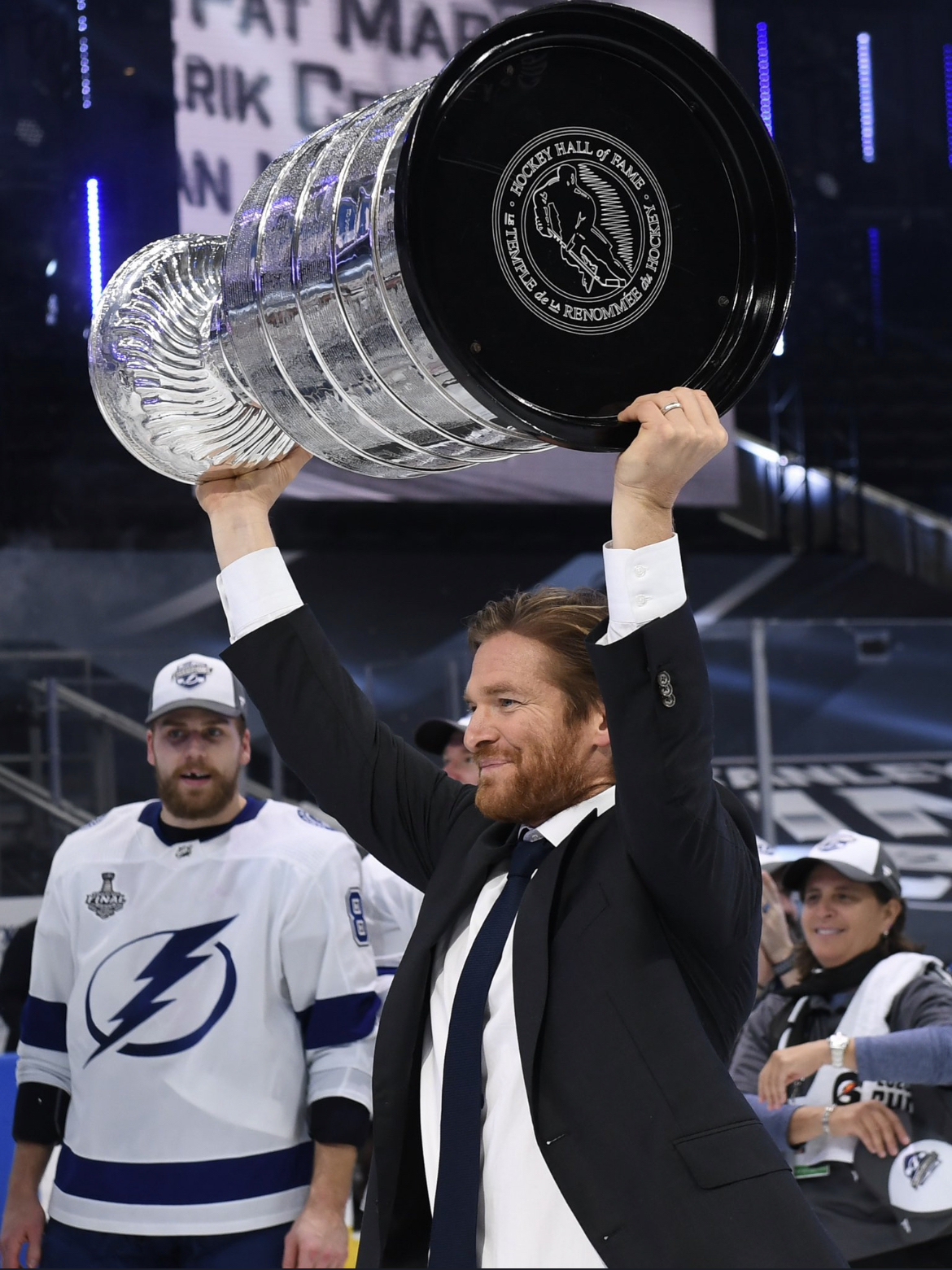Jeff Halpern ’99’s Coaching Helps Tampa Bay Lightning Win Stanley Cup
‘The best part of the job is that you’re in this think tank of great hockey minds’
“It was like being in a movie you had seen a million times, Star Wars or Goodfellas,” he says. “And then all of a sudden you were in the movie, like a dream.”
Halpern’s first coaching opportunity came with the Syracuse Crunch, Tampa Bay’s highest minor-league affiliate. He expected the transition into coaching to be seamless. “As a player you feel like you’ve experienced pretty much everything and know everything about the game,” he says. “But there’s so many skills and strategies and techniques that go into coaching that players haven’t experienced until you get into that field.”
Halpern found his footing quickly, impressing Tampa Bay’s brass. After three years with the Crunch, he joined the Lightning’s staff in 2018 as the team’s power-play coach.
Halpern has thrived in Tampa Bay’s collaborative environment, where the coaches are in constant dialogue with one another and with the team’s analytically-inclined front office. “The best part of the job is that you’re in this think tank, so to speak, of great hockey minds,” Halpern says. “If you have an idea, you have an analytics department that can support your thought or take shots at it.”
But merely coming up with good ideas isn’t enough in the modern NHL. As Halpern quickly discovered, ideas must be presented to players in a compelling way. “For today’s athlete, there’s so much that goes into their craft,” he explains. “They have skating coaches and skill coaches and their own personal video coaches… It used to be the coach said something, you just did it. Now you feel like a lawyer coming in to every player trying to get your point across.”
With some players, Halpern leans on analytics. Others prefer a more old-school approach. As a Princeton grad who also played 14 years as a hard-nosed center, Halpern is able to offer whichever is required. “I try to find different things they need,” Halpern explains. “And sometimes it’s getting out of the way and giving them space.”
Whatever the formula, it’s certainly working. Halpern’s power-play unit has been superb since he came on staff, finishing first and fifth in the NHL in power-play scoring percentage in his two seasons with the club.
The power-play unit shined brightest on the biggest stage, as Tampa Bay torched Dallas with a man advantage throughout the Stanley Cup Finals. The Lightning notched eight power-play goals in total, including an overtime winner in the momentum-shifting Game 4.
The most satisfying of them all? The opening goal of Game 6, which staked the Lightning to a lead it would never relinquish, delivering Tampa Bay its second Stanley Cup and Halpern his surreal, movie-like moment.










No responses yet